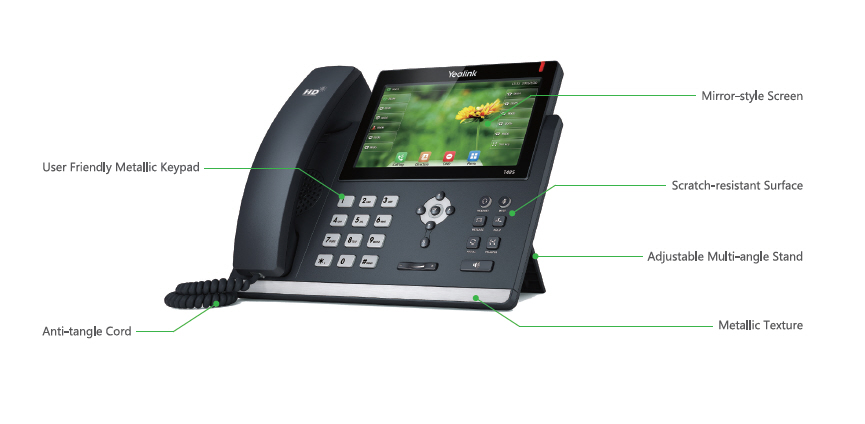Introduction
In today's competitive business landscape, small businesses need every advantage they can get to stay ahead. One area where small businesses can gain a significant advantage is in their phone systems. Traditional phone systems are costly and inflexible, often requiring expensive hardware and maintenance. However, with the advent of Voice over Internet Protocol (VoIP) technology, small businesses now have access to affordable and feature-rich phone systems that were once only available to large corporations. In this article, we will explore the benefits of VoIP phone systems for small businesses and why they are becoming the go-to choice for modern entrepreneurs.
The Benefits of VoIP Phone Systems for Small Businesses
VoIP phone systems offer a wide range of benefits for small businesses, including:
1. Cost Savings
One of the most significant advantages of VoIP phone systems is their cost-saving potential. Traditional landline phone systems can be expensive to set up and maintain, with costs often skyrocketing as a business grows. In contrast, VoIP phone systems leverage the power of the internet to transmit voice data, eliminating the need for physical phone lines and reducing monthly service fees. Additionally, long-distance and international calls are significantly cheaper with VoIP compared to traditional phone services.
2. Flexibility and Scalability
Small businesses often experience rapid growth or seasonal fluctuations in call volumes. With traditional phone systems, adding or removing lines can be a cumbersome and costly process. In contrast, VoIP phone systems offer unparalleled flexibility and scalability. Adding or removing lines is as simple as making a few clicks in the system's web-based interface. This allows small businesses to easily adjust their phone system according to their needs without incurring additional expenses.
3. Advanced Features
VoIP phone systems come equipped with a wide array of advanced features that can enhance productivity and improve customer service. These features include call forwarding, voicemail to email transcription, auto-attendant, call recording, conference calling, and more. Such features empower small businesses to provide a professional image and streamline their communication processes.
4. Mobility
With traditional phone systems, employees are tied to their VoIP service for small businesses desks and can only make or receive calls within the office premises. VoIP phone systems enable employees to make and receive calls from anywhere in the world as long as they have an internet connection. This level of mobility increases productivity and allows for remote work arrangements, making it easier for small businesses to attract top talent.
5. Integration with Other Business Tools
VoIP phone systems seamlessly integrate with other business tools such as customer relationship management (CRM) software, email platforms, and instant messaging applications. This integration enables small businesses to centralize their communication channels and streamline workflows. For example, incoming calls can automatically be logged in the CRM system, providing valuable data for sales and customer service teams.
6. Reliability and Redundancy
VoIP phone systems offer increased reliability compared to traditional landline systems. In the event of a power outage or natural disaster, calls can be automatically rerouted to alternate numbers or mobile devices using failover routing. This ensures uninterrupted communication and minimizes downtime for small businesses.
FAQs about VoIP Phone Systems for Small Businesses
1. What is a VoIP phone system?
A VoIP phone system is a technology that allows voice communication over the internet instead of traditional telephone lines. It converts voice signals into digital data packets that are transmitted over an IP network.
2. How does a VoIP phone system work?
VoIP phone systems use an internet connection to transmit voice data in digital form. The voice signals are converted into data packets that travel over the IP network to reach the recipient's device where they are converted back into audio signals.
3. Can I use my existing phone number with a VoIP phone system?
Yes, most VoIP service providers allow you to port your existing phone number to their system. This ensures that you can maintain business continuity and avoid the hassle of changing phone numbers.
4. Is it possible to use a VoIP phone system with mobile devices?
Yes, voip phone service VoIP phone systems are compatible with mobile devices such as smartphones and tablets. By installing a VoIP app on your mobile device, you can make and receive calls using your business phone number from anywhere in the world.
5. How secure is a VoIP phone system?
VoIP phone systems are inherently secure, but like any other online communication, they can be vulnerable to hacking or eavesdropping. However, by implementing proper security measures such as encryption and firewalls, the risk of unauthorized access can be minimized.

6. Are there any hidden costs associated with VoIP phone systems?
The cost of implementing and maintaining a VoIP phone system is typically lower than traditional landline systems. However, it is essential to consider factors such as internet bandwidth requirements and any additional hardware or software licenses that may be necessary for advanced features.
Conclusion
VoIP phone systems offer numerous benefits for small businesses looking to improve communication efficiency, reduce costs, and enhance customer service. With their flexibility, scalability, advanced features, and seamless integration capabilities, VoIP phone systems have become an indispensable tool for modern entrepreneurs. By transitioning to a VoIP phone system, small businesses can gain a competitive edge in today's fast-paced business environment while enjoying cost savings and increased productivity. Embracing this technology is a smart choice for any small business looking to thrive in the digital age.